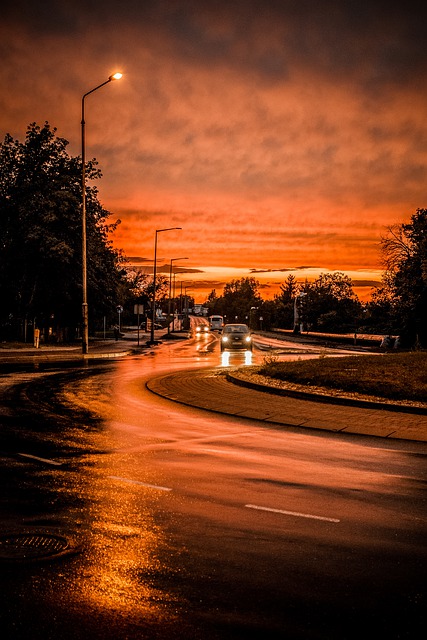4 Asma’ 166 B.E. (Baha’i Calendar)
Soundtrack in my head: Thievery Corporation, “The Time We Lost Our Way”

I remember one night in Chicago I looked out my window at 1 a.m. and was surprised to see that it looked almost bright enough to be daylight. The cloud cover was low, and the orange street lights reflected off the clouds so brightly that the sky appeared bright orange.
It wasn’t until I moved from downtown Madison to this near East Side neighborhood a year ago that I realized how much darker it is on Madison’s streets than in Chicago. I and two other Chicago transplants were the first to move into this co-op house after it had been vacated by its previous tenants, and we were taken aback by how dark it got in the house at night. In Chicago, it’s usually not too difficult to navigate around one’s apartment or house with the lights off–there’s usually enough light on the street that you can pretty much see where you’re going. We were surprised to see that this was not the case in this house–here we were at far greater risk of tripping or bumping into something. We now have LED night-lights that help us find our way around the house after we turn off the lights for the night, and I have a little flashlight on my watch which comes in handy.
Last night I went to a get-together at a friend’s apartment. She had a nice second-floor deck from which we could see twilight as the sun went down, and we could see stars as we looked up. We can see stars from our neighborhood, too. This was much more difficult in Chicago. In fact, I don’t think I remember seeing stars from my any of my apartments in Chicago. I think it’s different in Madison, because in addition to not having as many street lights, I think it helps that we are on a mile-wide isthmus sandwiched between two three-mile wide lakes.
But even here, the light pollution obscures most of the stars. I remember on a camping trip as a child, we were taken aback by the incredible number of stars in the sky, and I could see for the first time how the ancients were able to make out not only The Big Dipper and Little Dipper, but constellations like Aries or Aquarius. I would not be quick to argue that we should turn off all our street lights, but what are we losing when, on a day to day basis, most of we can’t see anywhere near as many stars as the ancients did?
